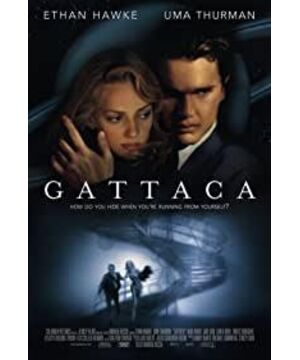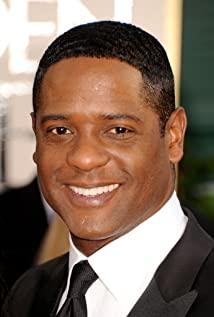The movie is very simple. The people in the future are genetically modified elites who are naturally conceived and have congenital defects, and are considered to be eliminated. In his own space dream, he still pretended to be "Jeron" (played by Jude Law), the best character with excellent genes, and sneaked into the space station. As a result, the incident of supervising the murder happened, and it happened that his eyelashes became the biggest suspect... ...
I have two very contradictory and opposing attitudes and opinions about this movie, which makes it difficult for me to calm down and judge what is right and what is wrong while watching this movie. Maybe this movie will bring people It is this kind of thinking: how to judge the value of right and wrong, perfection and defect, nature and nurture?
It can be said that the primary impression of this film is still very American-style cultural value orientation: emphasizing individualism, emphasizing perseverance, striving to change the shit life given by God, and finally achieving the dream space mission. When Vincent (Ethan Hawke) finally embarks on a journey into space, I think many of those passionate young people who dream of life will be touched and even changed.
We will all be shocked by Vincent's persistence. Just imagine how much effort it takes to change one's words and deeds, how much sweat it takes to strengthen one's physique and make oneself one of the elites in the past few years in order to keep our identity from being seen through. Elite? I think that whenever people are unhappy because of life, when they see this kind of tragic behavior, more or less, they will always believe that they are more fortunate than Vincent...
However, if the film only needs to bring Give people such an idea, then this movie can only be limited to the upper class of a second-rate movie, and cannot meet the requirements of a first-rate movie. I personally think that an excellent sci-fi movie, in addition to giving people a shallow level of thinking, also needs to have deeper and even opposite thinking, and this is the reason why an excellent movie is popular.
What I think about is the second point: Do people need to screen for good genes in the future? This question is really difficult to answer. Opponents can use Vincent's example to refute. After all, people are not products. People who have been screened can only be called the sad products of society, leaving a deep imprint. . People need different people to integrate in order to achieve progress, which is why the Olympic Games emphasizes a recognition of the unity of mankind. After all, an absolutely fair life cannot exist. If we use the pros and cons of genes to cleanse human beings, everyone has a strong physique, everyone has a good appearance, and everyone has a long life. Is it the constant pursuit of human beings? Since everyone is "Liu Xiang", then there is no longer "Liu Xiang" in this world. I thought of a sentence in "The Incredibles": "Since everyone can be Superman, then there is no Superman in this world." , isn't it a terrible phenomenon in a "perfect" world?
But at this point, I also think that the key to Vincent's twists and turns is that he is a "defective person". From a medical point of view, eliminating unnecessary genetic defects is responsible for future generations, which is why we emphasize "prenatal and postnatal care" now. It can be seen that human beings instinctively need people with perfect genes, but this The film highlights the overemphasis on genetic superiority of future humans. But if I were Vincent, I would hate my parents, why would they give birth to a "defective person" like me when everyone can enjoy the right to genetic screening? It's like everyone knows that HIV is transmitted through sexual contact. Since you know there are condoms to avoid, why don't you use them?
These are my two points of view. I have never been able to use one point of view to refute the other point of view. In fact, it doesn’t matter if you want to. After all, this is just some complicated thinking brought to us by excellent movies. You can’t use your own subjective attitude. Denying others, that's the wonderful place in the world...
The most shocking part of the film is the scene in which the genetically excellent "Jie Long" commits suicide by sitting in the "cleaner" at the end (after watching the movie, you can find that the original movie has been hinting before that, for example, "Jie Long" himself had In the conversation with Vincent, he said that he had committed suicide, such as the scene where the cleaner burns twice in the scene...), I think this ending is the key to the success of the movie: why did Geron commit suicide? Is it because he hated Vincent for using his identity and finally fulfilled his dream, but he must be accompanied by a wheelchair all his life? Maybe it's himself that Jeron hates, why a person with excellent genes needs the care of "defective people"... Of course, when Jeron bids farewell to Vincent in the film, he does not show such a mentality, he even He prepared enough blood samples and urine samples for Vincent for two lifetimes. It can be seen that he still appreciates Vincent's character of fighting for the unyielding fate, but he can no longer face his disability. Along with the raging flames, we can see the anticipation and gratitude in Vincent's eyes (he already vaguely knew that Jeron was going to commit suicide), and we can see the two pictures of the Olympic swimming silver medal hanging on Jeron's chest. Alternately, this really made me feel a sense of sigh.
It is worth mentioning that Jude Law's performance in this film is commendable. I believe that in this film, he no longer uses his appearance as a capital, but plays the role with heart. We can climb from him. From the stairs, it can be seen that his psychological grasp of this role is still in place. As for the heroine Uma Thurman, she is still in a vase role, which is optional.
With this excitement, I think, I will collect the foreign garbage of this movie...
View more about Gattaca reviews











